July 10, 2023 •
Maine Legislature Adjourns Sine Die
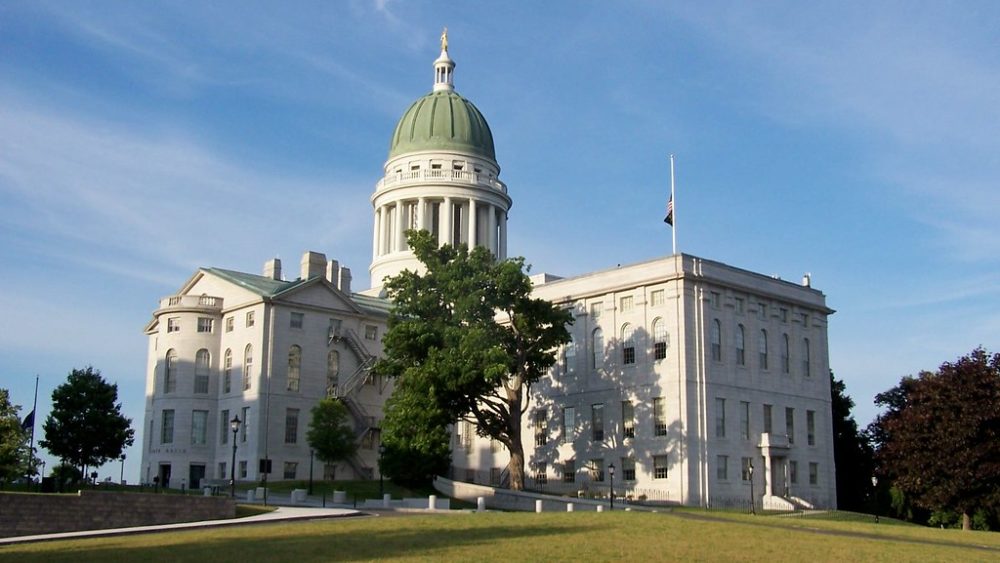
Maine Capitol Building
Lawmakers in the Democratic-controlled House and Senate completed their final session for the year and adjourned sine die on March 30. Bills related to campaign finance and lobbying reports were passed and signed by the governor. Senate Bill 255 requires […]
Lawmakers in the Democratic-controlled House and Senate completed their final session for the year and adjourned sine die on March 30.
Bills related to campaign finance and lobbying reports were passed and signed by the governor.
Senate Bill 255 requires campaign finance reports to be filed 42 days before any election instead of just general elections.
Senate Bill 1630 increases penalties for repeated late filings of lobbyist reports by $50 for each successive violation.
Both bills are effective 90 days after the adjournment.
April 7, 2020 •
Portland Auditor Extends Lobbyist Filing Deadline

The Portland Auditor has temporarily suspended enforcement of lobbying and political consultant reporting requirements for first quarter reports due to the COVID-19 outbreak. The deadline for lobbyist reports covering activity for the period of January 1 to March 31 is […]
The Portland Auditor has temporarily suspended enforcement of lobbying and political consultant reporting requirements for first quarter reports due to the COVID-19 outbreak.
The deadline for lobbyist reports covering activity for the period of January 1 to March 31 is extended until June 15.
The auditor’s office will not assess late fees or penalties for failure to:
-
- File quarterly reports
- Submit required updated information
- Register as a lobbyist or political consultant
Lobbying entities, political consultants, and city officials are encouraged to file reports when they are able to do so.

North Carolina State Legislative Building
Secretary of State Elaine F. Marshall has announced a grace period to file the first quarter lobbyist and principal reports due April 22. This comes in response to the COVID-19 pandemic and the importance of social distancing, Penalties for failure […]
Secretary of State Elaine F. Marshall has announced a grace period to file the first quarter lobbyist and principal reports due April 22.
This comes in response to the COVID-19 pandemic and the importance of social distancing,
Penalties for failure to timely file will not be levied if report is filed on or before July 22; is accompanied by a sworn and notarized statement that a notary could not be obtained prior to the date the report was filed; and all other reports due by July 22 are timely filed.
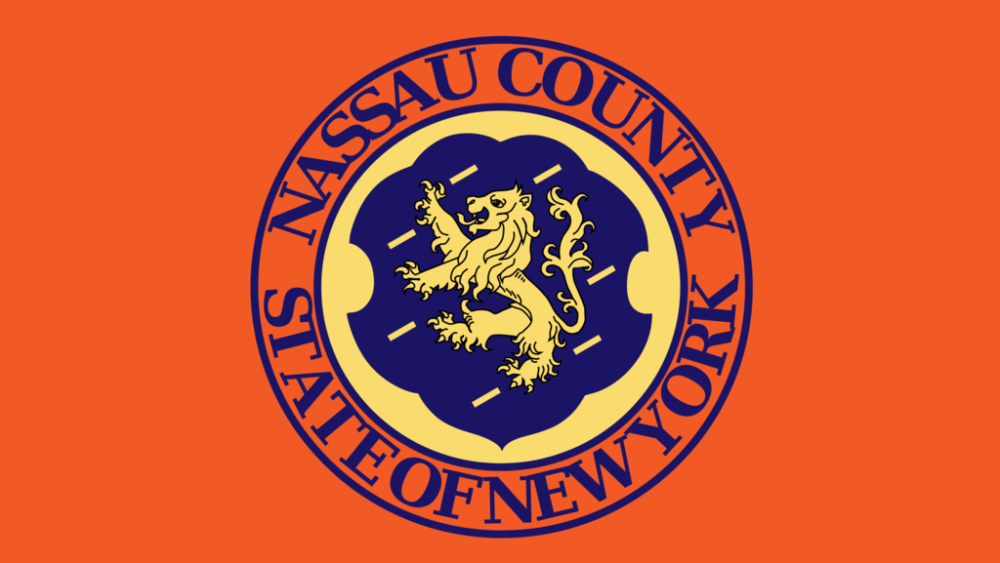
Flag of Nassau County, NY
The Office of the County Attorney announced emergency regulations extending the deadline for filing first quarter lobbyist reports. This comes in response to the COVID-19 outbreak and current state of emergency. The deadline for lobbyist reports covering activity for the […]
The Office of the County Attorney announced emergency regulations extending the deadline for filing first quarter lobbyist reports.
This comes in response to the COVID-19 outbreak and current state of emergency.
The deadline for lobbyist reports covering activity for the period of January 1 to March 31 is extended until May 15.
March 30, 2020 •
Hawaii Ethics Commission Issues Lobbyist Filing Extension
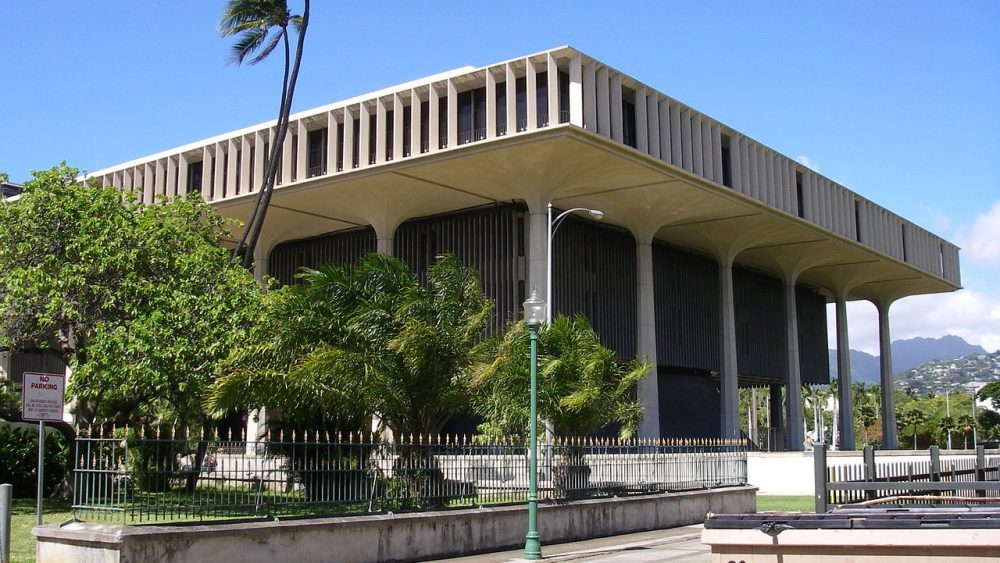
In response to COVID-19, the Hawaii State Ethics Commission issued an order. The order extends the deadline for lobbyist and employer activity reports to April 30. Originally, the reports were scheduled to be due on March 31 for the reporting […]
In response to COVID-19, the Hawaii State Ethics Commission issued an order.
The order extends the deadline for lobbyist and employer activity reports to April 30.
Originally, the reports were scheduled to be due on March 31 for the reporting period of January 1 to February 29.
If, as expected, the various state or county stay-at-home orders are still in place near the end of April, those deadlines will be extended again to May 31.
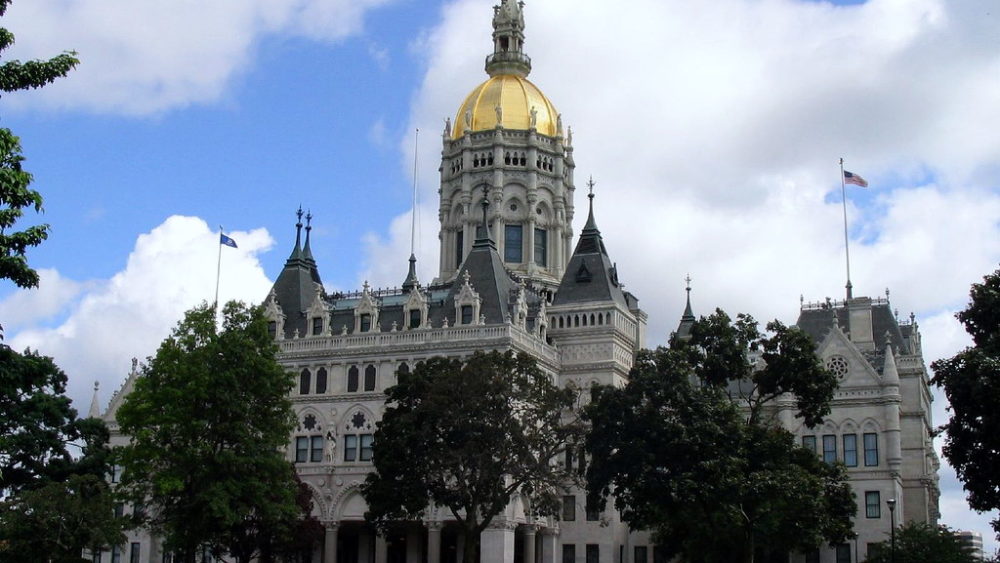
Connecticut State Capitol
Due to ongoing COVID-19 concerns, the Office of State Ethics announced a 30-day grace period for first quarter client lobbyist reports due on April 10. Any client lobbyist unable to meet the April 10 deadline will have until May 10 […]
Due to ongoing COVID-19 concerns, the Office of State Ethics announced a 30-day grace period for first quarter client lobbyist reports due on April 10.
Any client lobbyist unable to meet the April 10 deadline will have until May 10 to file their lobbyist activity reports.
During the public health emergency, the ethics office is available remotely and response times may be delayed.
Questions may be sent to lobbyist.ose@ct.gov.
November 3, 2016 •
Proposed Regulations Offered for New Rhode Island Lobbying Reform Act
On November 9, a public hearing will be held regarding proposed regulations for the new Rhode Island Lobbying Reform Act. The hearing will take place from 10:00 a.m. to 12:00 p.m. in the State House, Room 313. Additionally, a public […]
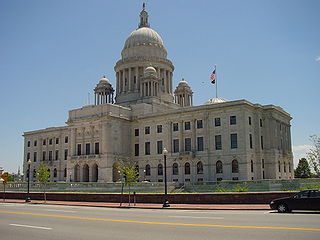 On November 9, a public hearing will be held regarding proposed regulations for the new Rhode Island Lobbying Reform Act. The hearing will take place from 10:00 a.m. to 12:00 p.m. in the State House, Room 313.
On November 9, a public hearing will be held regarding proposed regulations for the new Rhode Island Lobbying Reform Act. The hearing will take place from 10:00 a.m. to 12:00 p.m. in the State House, Room 313.
Additionally, a public comment period is open until November 27.
Senate Bill 2361 and House Bill 7388, both officially signed into law on June 13, repeal the current lobbying laws in Title 22 and Title 42 in the state’s statutes and enact the new act. Among the changes are the simplification of lobbyists’ reporting requirements, an increase in penalties for failing to comply with lobbying requirements, and the allowance for more investigative and administrative authority for enforcing the lobbying laws, including administrative subpoena power.
The Rhode Island Lobbying Reform Act takes effect on January 1, 2017. If passed, the new regulations will take effect on January 2, 2017.
Photo of the Rode Island State Capitol by Garrett A. Wollman on Wikimedia Commons.
January 19, 2016 •
New Lobby Legislation Filed in New Mexico
State Representative Jeff Steinborn has introduced three pieces of legislation aimed at lobbyist disclosure and transparency. Steinborn’s bills would require employers of lobbyists to file biannual reports disclosing all funding spent to lobby the state government; would require lobbyists to […]
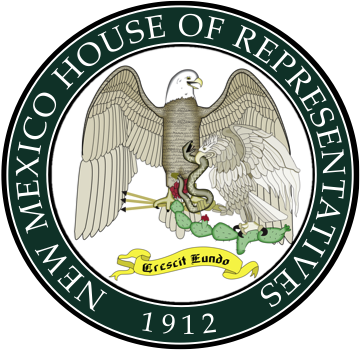 State Representative Jeff Steinborn has introduced three pieces of legislation aimed at lobbyist disclosure and transparency. Steinborn’s bills would require employers of lobbyists to file biannual reports disclosing all funding spent to lobby the state government; would require lobbyists to disclose specific pieces of legislation and administrative issues they are hired to work on; and would require lobbyists to specifically list each legislator who receives a gift, meal, or other expenditure from them.
State Representative Jeff Steinborn has introduced three pieces of legislation aimed at lobbyist disclosure and transparency. Steinborn’s bills would require employers of lobbyists to file biannual reports disclosing all funding spent to lobby the state government; would require lobbyists to disclose specific pieces of legislation and administrative issues they are hired to work on; and would require lobbyists to specifically list each legislator who receives a gift, meal, or other expenditure from them.
Steinborn has been successful with lobbyist legislation in the past, having passed a bill requiring the Secretary of State to publish lobbyist spending online in a searchable and downloadable format.
October 16, 2015 •
New York City Lobbying Rules Are Replaced
The Office of the City Clerk has published new rules to the city’s lobbying law following a public comment period and summerlong review by the Law Department. The rules require a lobbyist or client to designate a principal officer to […]
 The Office of the City Clerk has published new rules to the city’s lobbying law following a public comment period and summerlong review by the Law Department. The rules require a lobbyist or client to designate a principal officer to electronically file the registration and reports by enrollment in the city’s online e-Lobbyist system.
The Office of the City Clerk has published new rules to the city’s lobbying law following a public comment period and summerlong review by the Law Department. The rules require a lobbyist or client to designate a principal officer to electronically file the registration and reports by enrollment in the city’s online e-Lobbyist system.
While the rules allow for a designee or compliance officer to assist the principal officer in completing reports, they prohibit a principal officer from sharing his or her e-Lobbyist password. The rules also detail the procedure for enrolling in e-Lobbyist; provide requirements for retainers and authorization letters; indicate when filing extensions may be obtained; provide procedures for obtaining a waiver of late filing penalties; establish enforcement procedures; and create an amnesty program. The amnesty program would allow certain violators of the lobby law to come into compliance without penalty if meeting the eligibility criteria.
The rules are effective November 4, 2015.
March 4, 2015 •
Ask the Experts – Lobbyist Reporting During Legislative Sessions
Q. Many of the state legislatures I lobby are currently in session. Does this affect when my lobbying reports are due? A. While some states have reporting schedules that do not vary from year to year, others tie their lobbyist […]
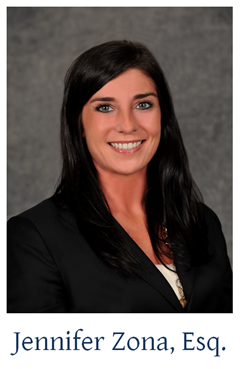 Q. Many of the state legislatures I lobby are currently in session. Does this affect when my lobbying reports are due?
Q. Many of the state legislatures I lobby are currently in session. Does this affect when my lobbying reports are due?
A. While some states have reporting schedules that do not vary from year to year, others tie their lobbyist reporting schedules to their legislature’s activity. Currently, 11 states have reporting schedules that vary to some degree with their legislative sessions: Alaska, Arkansas, Connecticut, Georgia, Hawaii, Idaho, Mississippi, Montana, Nebraska, Nevada, North Carolina, and Rhode Island. Some of these states require additional reports during the legislative session, while others tie reporting dates to the session’s adjournment.
For example, Georgia requires legislative lobbyist reports twice per month while the Legislature is in session. Reporting frequency decreases to once per month once the Legislature adjourns. Connecticut, Arkansas, and Alaska all require monthly legislative lobbyist reports while their legislatures are in session.
Other states have reports tied to the official adjournment of the legislature. Mississippi requires an end-of-session report 10 days after the Legislature adjourns sine die. Some legislatures, such as Mississippi and Nebraska, have the flexibility to change their planned adjournment date, in which case a report may be due earlier or later than previously announced. It is also important to note only official adjournment dates affect the reporting schedule. State legislatures concluding business for the year, but not officially adjourned, may still require a lobbyist to use the “in session” reporting schedule. Rhode Island, for example, requires monthly reports only when the Legislature is in session, but the Legislature does not officially adjourn until January of the following year.
Special legislative sessions may also trigger a lobbying report. States such as Nebraska and Hawaii require an additional report following the adjournment of a special legislative session. In states requiring special session reports, a report may be required even if the full legislature did not convene in special session.
Each jurisdiction’s statutory reporting schedule is different. Be sure to know your state’s reporting schedule and whether a legislative session will change your requirements.
You can directly submit questions for this feature, and we will select those most appropriate and answer them here. Send your questions to: experts@stateandfed.com.
(We are always available to answer questions from clients that are specific to your needs, and we encourage you to continue to call or e-mail us with questions about your particular company or organization. As always, we will confidentially and directly provide answers or information you need.) Our replies to your questions are not legal advice. Instead, these replies represent our analysis of laws, rules, and regulations.
December 2, 2014 •
Ask the Experts – LD-2 Reports and Nondeductible Lobbying Expenses for Federal Income Taxes
Q. For federal income tax purposes, our organization has been using the aggregate amounts reported on our quarterly LD-2 lobbying activity report as our nondeductible lobbying expenses. Can the expenditures we compile for LDA reporting be used interchangeably for tax […]
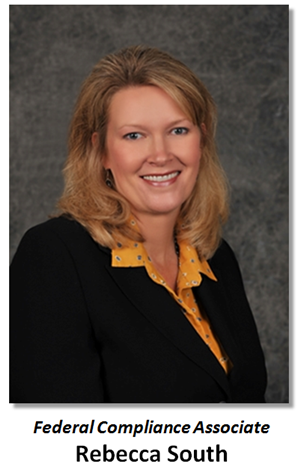 Q. For federal income tax purposes, our organization has been using the aggregate amounts reported on our quarterly LD-2 lobbying activity report as our nondeductible lobbying expenses. Can the expenditures we compile for LDA reporting be used interchangeably for tax purposes?
Q. For federal income tax purposes, our organization has been using the aggregate amounts reported on our quarterly LD-2 lobbying activity report as our nondeductible lobbying expenses. Can the expenditures we compile for LDA reporting be used interchangeably for tax purposes?
A. In a word: maybe – It depends on the method of LDA reporting you’ve opted to follow. If you file your LD-2 report using the IRC definitions (method C), then the number you compile and report on your LD-2 can be used interchangeably for tax purposes. However, if you compile and report your quarterly lobbying expenditures using LDA definitions (method A), the results will not accurately reflect nondeductible lobbying expenses as defined by the IRS. Because the definition of “lobbying” differs between the LDA and the IRC, the two compilation methods will produce very different results. If you use LDA definitions to compile your quarterly LD-2, your organization must employ a second process by which to determine your nondeductible lobbying expenses for tax purposes. A lobbying registrant can determine each year which method they will use to compile the LD-2 report. Once a method has been selected, a registrant must use that method for all four quarterly reports during that year.
You can directly submit questions for this feature, and we will select those most appropriate and answer them here. Send your questions to: experts@stateandfed.com.
(We are always available to answer questions from clients that are specific to your needs, and we encourage you to continue to call or e-mail us with questions about your particular company or organization. As always, we will confidentially and directly provide answers or information you need.) Our replies to your questions are not legal advice. Instead, these replies represent our analysis of laws, rules, and regulations.
August 4, 2014 •
Ask the Experts – Selling to the State: Is Lobbyist Registration or Reporting Required?
Q. Several employees from my organization engage in selling to the states. Do they have any lobbyist registration or reporting requirements? A. The answer to your inquiry depends on two things: first, does the state regulate procurement lobbying, and second, […]
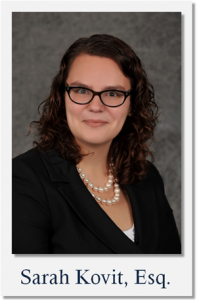
Q. Several employees from my organization engage in selling to the states. Do they have any lobbyist registration or reporting requirements?
A. The answer to your inquiry depends on two things: first, does the state regulate procurement lobbying, and second, is there an applicable bona fide salesperson exception to the registration requirement. To determine whether a state regulates procurement lobbying, you can use our Executive Source Guide on Procurement Lobbying. The regulation of individuals attempting to influence the selection of a vendor has increased significantly, and this trend is expected to continue.
In states where procurement lobbying is regulated, individuals engaging in sales activity may be exempt from the registration requirement where a bona fide salesperson exception exists. For example, in Maryland, a regular full time employee of a vendor paid to engage primarily in sales activity on behalf of the vendor is exempt from lobbyist registration. In New York, the exception even extends to sales agents with contracts to represent their clients for a period longer than six months.
Absent an exception, sales employees who meet the lobbyist registration threshold in a state regulating procurement lobbying will be required to register.
![]()
You can directly submit questions for this feature, and we will select those most appropriate and answer them here. Send your questions to: marketing@stateandfed.com.
(We are always available to answer questions from clients that are specific to your needs, and we encourage you to continue to call or e-mail us with questions about your particular company or organization. As always, we will confidentially and directly provide answers or information you need.) Our replies to your questions are not legal advice. Instead, these replies represent our analysis of laws, rules, and regulations.
The Ethics Commission has produced a summary of changes to the city lobbyist ordinance taking effect July 26, 2014. Ordinance File No. 130374 expands the definition of “lobbyist” and requires random audits of lobbying reports. Meeting the registration threshold of […]
 The Ethics Commission has produced a summary of changes to the city lobbyist ordinance taking effect July 26, 2014. Ordinance File No. 130374 expands the definition of “lobbyist” and requires random audits of lobbying reports.
The Ethics Commission has produced a summary of changes to the city lobbyist ordinance taking effect July 26, 2014. Ordinance File No. 130374 expands the definition of “lobbyist” and requires random audits of lobbying reports.
Meeting the registration threshold of a lobbyist will now depend on the number of compensated contacts with a covered official rather than the level of compensation received. The lobbying exemption for contractors and their attorneys will be limited to in-house officers and employees. Outside consultants communicating with public officials regarding contract bidding and negotiating will be subject to the registration and reporting requirements of lobbying.
The commission’s summary is available here.
June 23, 2014 •
San Francisco Board Approves Changes to Lobbying Law
The Board of Supervisors passed amendments to the city’s lobbying law at a meeting on June 17, 2014. Ordinance 130374 expands the definition of “lobbyist” and requires random audits of lobbying reports. The lobbying exemption for contractors and their attorneys […]
 The Board of Supervisors passed amendments to the city’s lobbying law at a meeting on June 17, 2014. Ordinance 130374 expands the definition of “lobbyist” and requires random audits of lobbying reports.
The Board of Supervisors passed amendments to the city’s lobbying law at a meeting on June 17, 2014. Ordinance 130374 expands the definition of “lobbyist” and requires random audits of lobbying reports.
The lobbying exemption for contractors and their attorneys will be limited to in-house officers and employees. Meeting the definition of a lobbyist will now depend on the number of compensated contacts with a covered official rather than the level of compensation received. Outside consultants communicating with public officials regarding contract bidding and negotiating will be subject to the registration and reporting requirements of lobbying.
The ordinance will be effective 30 days following Mayor Ed Lee’s signature.
State and Federal Communications, Inc. provides research and consulting services for government relations professionals on lobbying laws, procurement lobbying laws, political contribution laws in the United States and Canada. Learn more by visiting stateandfed.com.

